A Guide To MBA In Shipping
Merchant Navy is a specialized field, which provides an experience unlike that offered by any other profession. However, the constant travelling, almost zero social life, and hostile working environment can take a toll on people working on ships. These reasons have also been the main driving force behind people leaving sailing for a shore job.
In case you are one of those, who want to shift to a shore job or want to go for further education, a degree in Masters in Business Administration (MBA) would be the best option for a promising career on shore.
Why MBA in Shipping?
The Master of Business Administration (MBA) has been a hot choice for furthering one’s career aspirations for a very long time. Many b-schools have sprung up, offering the course with a wide range of electives to specialise in.
For seafarers looking to switch careers, advance their knowledge in shipping, or change functions within the shipping industry, MBA has long been a conduit to facilitate the aforementioned transitions. Amid a plethora of shipping management course offerings, it is important to navigate through those that are relevant to one’s need and career goals to choose an MBA (or a specialised Masters, as the case may be) while keeping in mind the course content, return on investment (ROI) and prospective employment.
With regards to prospective employment (a legitimate concern considering the significant investment of time and money), the MBA in shipping courses spans different countries with different work visa regulations, a critical aspect when researching the big step in business education. Without further ado, let us dive straight into the topic.
What kind of MBA can a Maritime Professional do?
A maritime professional can opt for any one of the following MBA programs. Note that these are not the only options. However, these would offer the best future prospects considering the kind of work experience maritime professionals already have.
- MBA in logistics and supply chain
- Port management
- MBA in shipping management
- MBA in shipping and logistics
- MSc in maritime administration and logistics
- MSc in international trade
- MSc in port management etc.
A person, who wants to explore options beyond the shipping industry, can choose any one of the conventional subjects of MBA such as Marketing, Finance, Human resource etc.
However, an MBA degree in above-mentioned programs would benefit a mariner who already has the right kind of experience and knowledge of the subjects taught in these courses.
What are the MBA selection criteria for Maritime Professionals?
All reputed colleges providing an MBA degree in Shipping look for two main things – decent work experience and the GMAT score (or equivalent). They also take into account a good work profile and consistent grades throughout high school and graduate program.
Also, note that some colleges providing MBA in shipping can consider a candidate without a GMAT score if the person has extensive sailing experience (more than 7-8 years) along with an exceptional past record and work profile. However, this criterion is decided solely by the concerned business school.
Apart from GMAT, one would also require clearing English languages proficiency tests such as TOEFL and IELTS. (This is only if the person is applying to an international business school and when English is not his or her first language.)
How can a degree in MBA help a maritime professional?
When a mariner wants to shift to a shore job or want to go for higher education, there are a couple of options available. However, to get a decent position in a reputable shipping company, one requires two main things –
- Extensive job experience (More than two years)
- A degree in MBA (or equivalent higher degree)
If you already have a good amount of experience sailing as a captain or a chief engineer of a ship, then you are probably the right person for a managerial position in a shipping company on shore. However, the experience of a Chief engineer or a Captain backed by an MBA degree would surely make you more “preferable” for the right position.
But this is about maritime professionals who already have extensive experience at sea. What about those officers who want to quit sailing early in life for an office job on shore? It is often seen that shipping companies are reluctant to recruit officers with less managerial level work experience at the sea. For such officers, an MBA degree would open many doors of opportunities not only in the shipping field but also in other sectors.
What’s the first step towards MBA?
Getting a degree in MBA from a reputed university is no piece of cake. Competition is fierce and the process is lengthy and stressing. One needs to have a good amount of dedication along with clear goals in order to attain an MBA degree in shipping.
The first step towards an MBA degree would be to clear a standardized management test (entrance exam), which is necessary to apply for an MBA degree in a reputed college.
Each country has its own standardized test for MBA colleges. For e.g. India has the Common Admission Test (CAT) for MBA.
However, anyone who is looking forward to an MBA degree from an international college, he or she will have to get a decent score in GMAT (Graduate Management Admission Test), a computer adaptive test which is accepted by almost all business colleges around the world.
Some private business schools have their own MBA entrance exams and selection procedures. However, GMAT is accepted by all the top reputed management colleges around the world.
A Generalised List of Admission Requirements for an MBA:
- Undergraduate degree in any discipline
- GMAT or GRE score
- Letter(s) of recommendation (usually two or three)
- Filled application form
- Essays/Statement of purpose
- Work experience (not always required but always preferred)
Note that the above vary among countries and course choices. Master’s degrees in the US require an individual to take the GMAT or GRE while those in Europe don’t have that requirement. For the MBA, as mentioned earlier, most of the recognised universities require the GMAT (the GRE has become an alternative even for the MBA with most schools accepting GRE scores now). For the prestigious IIMs (in India), the CAT examinations determine the prospect of entry into one of them.
Main Exams For MBA
The Graduate Management Admission Test (GMAT) is a computer adaptive test scored out of 700 intended to assess certain analytical, writing, quantitative, verbal, and reading skills in written English for use in admission to a graduate management program, such as an MBA. Follow the link to know about the exam; there are ample resources already available online to know all there is to the exam.
The Graduate Record Examinations (GRE) is a standardized test that is an admissions requirement for most Graduate Schools in the United States. The GRE aims to measure verbal reasoning, quantitative reasoning, analytical writing, and critical thinking skills that have been acquired over a long period of learning. The content of the GRE consists of certain specific algebra, geometry, arithmetic, and vocabulary. The GRE General Test is offered as a computer-based exam administered at Prometric testing centres.
Future Prospects: Is MBA in Shipping For You?
Almost all prestigious MBA programs conduct their admissions process with the basic tenet of diversity in mind, meaning that applications are welcome from candidates across various industries and functions. It is not unheard of to have military veterans, investment bankers, private equity professionals, engineers, management consultants, writers, athletes and seafarers rolled into one MBA cohort. It is this aspect of diversity that enables an enriching class that has input through real-life experiences from different backgrounds, amalgamating into a well-rounded output with different perspectives to decision making.
The MBA or Masters can open up opportunities in chartering, shipbroking, ship operations and business development in a maritime-focused company (among others). It can also help a candidate to switch careers into financial services, supply chain, energy, trading, consulting etc. In a two year MBA curriculum, for example, the first year is spent focusing on the core business subjects, enabling the candidate to develop a working knowledge of accounting, managerial economics, organisational behaviour etc. – knowledge that is applicable to any industry. The second year is spent specialising in their choice of the industry through electives.
Where to Do MBA in Shipping?
The information will now be continued country wise, listing the top couple of/few courses pertaining to the maritime industry (along with other details) or the common course choices of seafarers who have already made their moves, depending on the country.
The list of courses is vast and with this initial introduction into the MBA/Masters, a prospective candidate can continue to do their own research to see which course fits their career aspirations best.
United States of America
The US of A is awash with the best names in management education. From the world’s best universities in business education such as Harvard, Stanford, Wharton to the best-specialised programs in supply chain management at Sloan (MIT), Smeal (PSU), Broad (MSU), WP Carey (ASU) – the US has plenty of choices to fulfil one’s career goals, whether they are to switch industry and/or functions or to further one’s interest in an overall general management education. However, the US is not the best option if one is focused on getting a degree specific to the maritime field. There are a handful of colleges that offer a Masters degree related to the maritime sector and they primarily cater to the domestic candidate and aren’t really popular among seafarers in the past. Note that a general management MBA is not focused on the maritime field but can open up a wide array of options in a variety of industries and functions, including the maritime field.
- Master of Science in International Transport Management at SUNY
- Masters in Maritime Administration and Logistics at Texas A&M University
United Kingdom
The UK has been the go-to place for most of the seafarers looking to further their education in the maritime sector and thereby switching over to a shore job upon completion. Most of the postgraduate taught Masters courses do not require the GMAT and hence make the application process less cumbersome for those not willing to take these standardised tests. The UK is a hub for the shipping industry – from housing the Baltic Exchange to the Institute of Chartered Shipbrokers, the UK has many options to diversify within the industry.
One must keep in mind that the UK Government visa regulations poses a considerable worry for foreign aspirants, especially those from the non EU/non EEA pool, wherein only a few months of stay is allowed to gain some work experience in the country upon country, unless of course, the employer is willing to sponsor their stay. It’s not that staying on and working in the UK is impossible, it’s just very competitive. There has been speculation for changes in their visa structure and it is advised to make practical decisions keeping in mind the costs, probability of employment and the acceptability of the course in an international market in mind. Also, it is prudent to remember that online courses might not hold the same value as a taught course across the world and surely don’t give the candidate the opportunity to network and find employment in the country of study.
Following are some of the popular choices:
- MSc in Shipping, Trade and Finance at Cass Business School
- MSc in International Shipping and Finance at the ICMA Centre
- MSc in International Shipping at University of Plymouth
- MSc in International Shipping and Logistics at Southampton Solent University
- MSc in Maritime Policy and Shipping Management at Cardiff University
- MBA in Shipping and Logistics from Middlesex University (Online)
- Various professional courses from the Lloyd’s Maritime Academy
Germany
Germany has been attracting students from all over the world owing to its low tuition fees and by virtue of being a very robust economy. As with most European economies, it is tough to crack into the job market as a foreigner from outside of the EU; however, Germany offers a lot more opportunities than most other nations, the maritime sector included. The work visa regulations are also comparatively relaxed giving the candidate ample wiggle room to seek employment. Germany also encourages foreign students to pursue their academic interests in their country by offering an array of scholarships (DAAD). Let us list out a few relevant courses for you.
- Shipping MBA at HSBA
- Master in International Maritime Law & Logistics at Kuhne Logistics University
France
France has long been the choice of Indian students for their general management courses. Institutes such as HEC Paris, INSEAD, EDHEC and the likes have long been the destination for Indian students. However, for courses specific to the maritime field, the following options stand out. France also has the option to work in their country after completion of a postgraduate course for an extended period but employment depends a lot on knowing the language and integrating into the French culture (as with most European destinations). Following courses are tailored to shipping:
- MSc in International Trade and Logistics at KEDGE (It has a strong focus on the maritime sector)
- MSc in International Logistics and Port Management at EM Normandie
Netherlands
Netherlands is also a major maritime hub – the port of Rotterdam is a historical port and one of the busiest in the world. As seafarers, most have been to Rotterdam at some point. The Dutch are generally extremely polite and welcoming people and fluent in English. The country is clean, green and is also a solid economy with a higher possibility of finding jobs owing to their open labour market for Indians. However, as always, it’s best to pick up working knowledge of Dutch in order to increase chances of employment. Quality of studies are also good, a conclusion that has been arrived at after speaking to many students who have pursued the following courses:
- MSc in Maritime Economics and Logistics at Erasmus University
- Master of Science in Shipping and Transport at STC-NMU
The former has a more academic approach while the latter has a more practical and hands-on approach.
Greece
A country that has gone through (and still going through) a very big economic turmoil, Greece isn’t the first name that comes to mind when thinking of pursuing a postgraduate degree and employment. However, Greece has had a historical association with shipping and the industry is a very coveted one in the country with a lot of aspiring professionals, especially in the shipbroking industry. Greece is also home to innovation in shipping with companies such as Signal Maritime based out of there.
- MBA in Shipping at ALBA
- MSc in Shipping Management at ALBA
Sweden
It might a very cold country but with its stellar healthcare, gender equality, high quality of education and robust economy, Sweden might seem like a viable destination for many students. Till very recently, education was free even for international students, a rule that was eventually turned. While tuition fees are comparatively lower, Scandinavian countries are expensive to live in. Following courses specific to the maritime industry are popular:
Belgium
We could dig out just one course in Belgium that is directly associated with Maritime studies – C-MAT at the Univeristy of Antwerp – offers a comprehensive 1-year advanced Master programme (60 ECTS). The programme consists of 45 ECTS courses and 15 ECTS dissertation or dissertation project.
Australia
Australia is a fantastic country to be in – with high standards of living, plenty wildlife and beaches, it’s a great student experience. While not the first choice for Maritime studies, Australia does have a couple of options for postgraduate studies.
- MBA in Maritime and Logistics Management at AMC
- Master of Maritime Studies at University of Wollongong
Singapore
Another country that a seafarer has been to at some point in their life. A country that has transformed into a hub of business across different industries thanks to the legendary LKY, Singapore is the go-to place for many seeking employment in the maritime sector. Many top-notch shipbroking and chartering firms, as well as shipping companies, have an office in Singapore owing to its strategic location and a massive port that is one of the busiest. Singapore is home to a very high number of expats, a lot of whom are employed in the maritime sector. While migration and obtaining the work permit used to be very easy, it has become tougher now. The quality of education in Singapore is also immense and some of the universities consistently rank among the best in the world (NUS, NTU). Following are some of the courses in shipping:
- MSc in Maritime Studies at Nanyang Technological University
- Various courses at IMBM
- Diploma in Maritime Business from SMA
Hong Kong
HK is also a very expat-friendly nation that is strategically important as a maritime hub. Hong Kong is well placed to facilitate the myriad of supply chains and the growing consumer markets in Asia. The prime location, world-class infrastructure and extensive multi-modal transport network make our city an efficient logistics hub in the region. The HKUST MBA has consistently been ranked as one of the top programs in the world and a lot of seafarers looking to make a career switch have chosen this MBA. Specific to the maritime sector, the following is a course we found suitable:
India
India is a rising superpower with strong ties to shipping, providing a vast number of qualified officers to shipping companies. While the recruitment for entry-level officers has drastically slowed down causing a lot of trouble for junior officers, there are ways to switch over to the shore side positions in the industry with some hard work and dedication. While initially, the jobs in commercial shipping might not be as lucrative as that out at sea, over a long term there is a lot of scope and employment opportunities across the world. Following are some of the courses available in India:
- Post Graduate Diploma in Shipping Management at NMIS
- MBA Port & Shipping Management at UPES
- MBA Port and Shipping Management at IMU
Resources For MBA Information
Quitting one’s professional career to pursue an MBA or a Masters is a huge commitment of time as well as money. Everybody is looking for the best ROI on their education and it is natural to want to know more that there is on the university websites. While there aren’t websites dedicated to maritime education in the postgraduate level (we are endeavouring to do as much as we can), there are a lot of resources online to find out more about the MBA as a course in general. Following is a list of worthy resources pertaining to the MBA:
It is advisable for the readers to understand that the list of courses is indicative and not exhaustive. There definitely are more courses in many other countries that we might not be aware of and we would welcome additions in the comments section. One final thing to always remember – career goals are subjective and one must do THOROUGH research with regard to any Masters course or MBA in shipping before jumping to a final decision. Read as much as possible on the course modules, quality of teaching, employment prospects, funding options etc before making a firm decision aligned with your own career aspirations. Ask alumni and industry experts for their advice regarding the courses.
An investment in education is possibly the best investment and can reap exponential benefits. Good luck!
Disclaimer: The authors’ views expressed in this article do not necessarily reflect the views of Marine Insight. Data and charts, if used, in the article have been sourced from available information and have not been authenticated by any statutory authority. The author and Marine Insight do not claim it to be accurate nor accept any responsibility for the same. The views constitute only the opinions and do not constitute any guidelines or recommendation on any course of action to be followed by the reader.
The article or images cannot be reproduced, copied, shared or used in any form without the permission of the author and Marine Insight.
Do you have info to share with us ? Suggest a correction

About Author
Shilavadra Bhattacharjee is a shipbroker with a background in commercial operations after having sailed onboard as a Third Officer. His interests primarily lie in the energy sector, books and travelling.
Latest Marine career Articles You Would Like:
- A Guide To IMU CET Exam 2024
- A Guide to Merchant Navy Ranks
- What is Marine Engineering: Courses, Job Description & Salary
- Duties of 3rd Officer in Merchant Navy
- What is the Difference between Merchant Navy and Defence Navy?
- Naval Architecture vs Naval Engineering vs Marine Engineering vs Ocean Engineering
Subscribe To Our Newsletters
By subscribing, you agree to our Privacy Policy and may receive occasional deal communications; you can unsubscribe anytime.
Web Stories




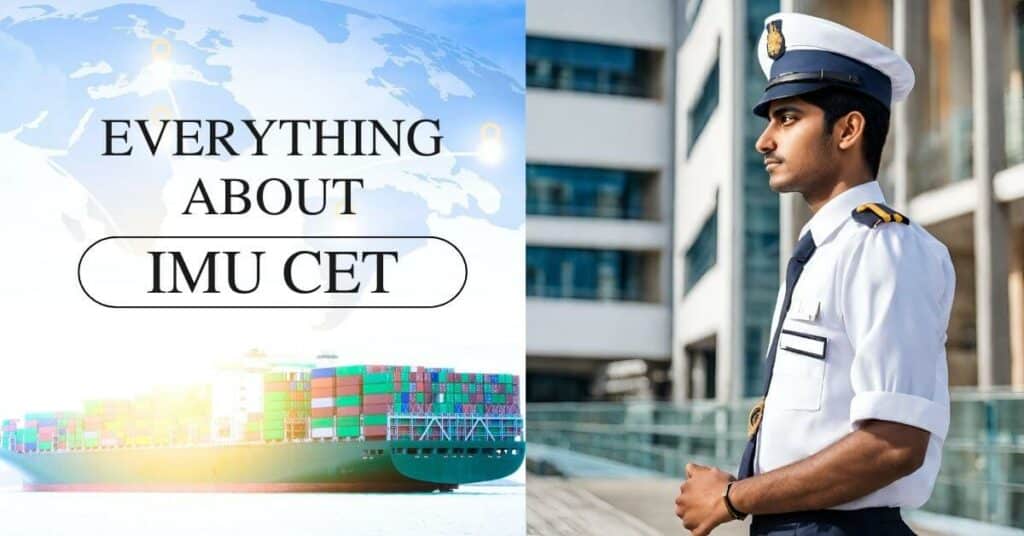
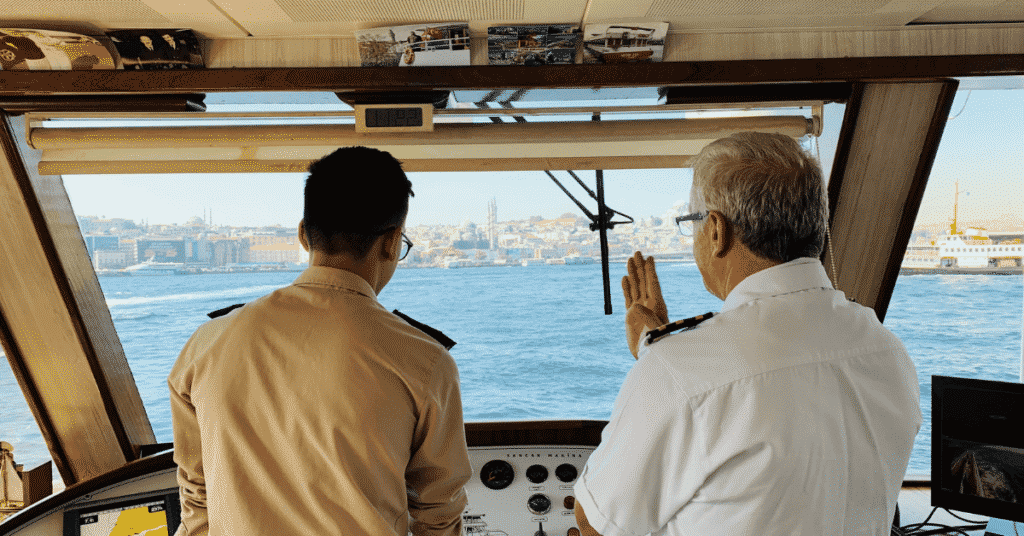






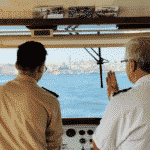





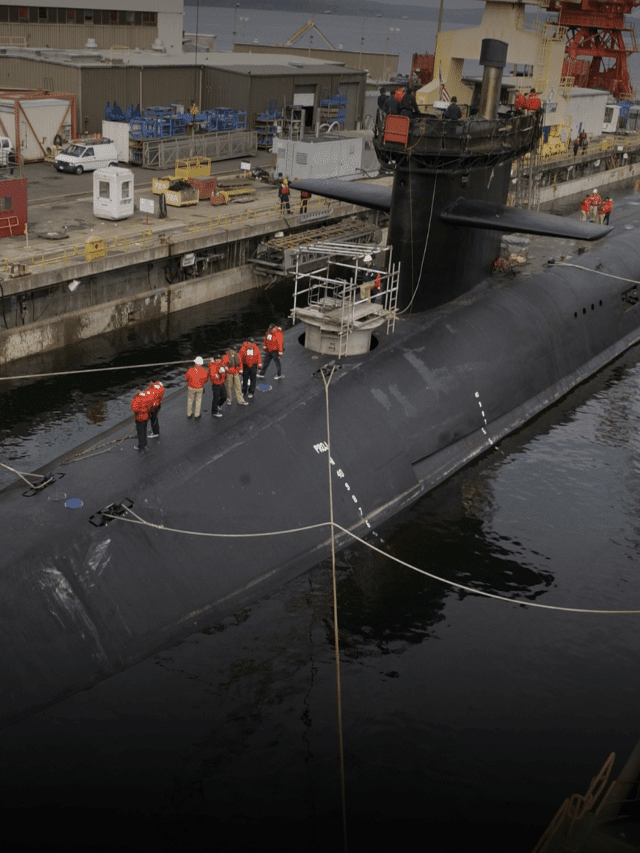


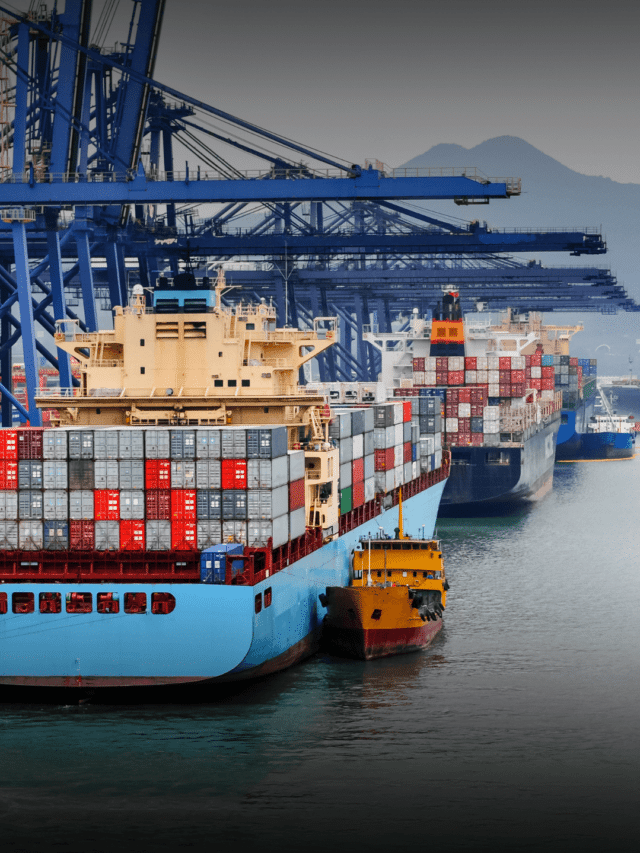
We need good government support for the Indian seafarer’s on cruise line’s.
Great Article. Very Insightful.
Besides the MBA programs for mariners listed in your article, could you please state your views on the following two programs for mariners from “a good fit” and “job prospects” point of view.
1. LBS Sloan Fellow
2. CBS Executive MBA in shipping and Logistics
Thanks
Would love to have some educational options available in Canada too. Will you pls enlighten us about the same.
Many thanks.
Great article and lot of insights. One small correction – – The Graduate Management Admission Test (GMAT) is a computer adaptive test scored out of 700.
It is scored out of 800. I think it is just a typo. Othrwise, a great one 🙂
a very informative article of marineinsight.most of the programs and courses are suitable for captain or chief engineers having over years experience to sit on management level..how about a 3rd mate for higher study!? in that case can you please suggest the trending subjects in upcoming years..
is there any scope for MBA in oil and gas management (distance education) in shipping industry ?
@Prasad Joshi: Do check Lloyds maritime distance learning options- https://bit.ly/2MqUfNf
The scope of management courses is increasing day by day. Once you have completed your degree, you have a great job opportunity in the industrial world. In the management sector you can reach at the top designation, in quick span of time. It opens a number career paths in the future. In any sector, master of business administration experts or professionals play a very significant role.The management is the way to reach on the top of the height as soon as possible by using your leadership and working proficiency. After the completion of Btech i’ve placed in so many companies but going for MBA as higher studies is my best decision ever. now Here i am the student of MBA from Quantum University which does not only have a good educational background but which provides me more than that and develops me as a whole.